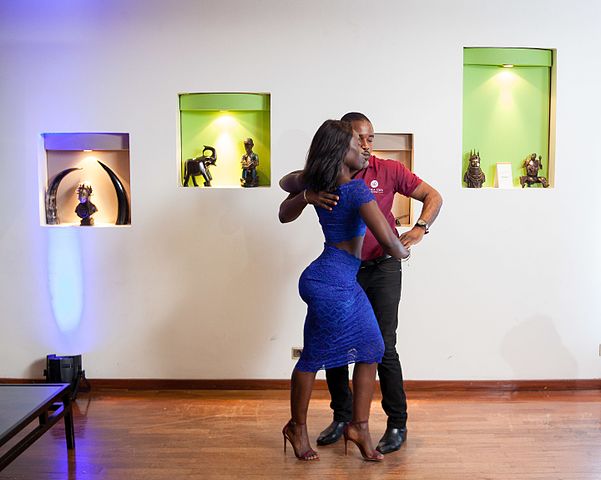Over the past few years, Lisbon, Portugal, has seen a vibrant explosion in its Afro-Portuguese music scene. Influenced by Angola, Cape Verde and Mozambique beats, Lisbon’ clubs and underground venues have attracted both music fans and musicians from around the world.
Lisbon-based labels have been the driving force behind the booming scene – providing a hub for up-and-coming artists as well as putting on eclectic party nights showcasing music that blends Western, African and Latin musical influences in unique ways.
Afro-Portguese music has also become a key for parties that are showcasing electronic music influenced by zouk, kuduro, kizomba and funaná.
Travel Noire has rounded-up five places where you can enjoy Afro-Portuguese music when visiting Lisbon.
1. The Docks Club
Located in the former warehouses of the docks of Alcântara, the Docks Club has existed for many years, and has always been successful. It is a perfect place to dance to African music genres such as Kizomba, samba or African-house. They also plany hip hop and R&B.
2. The Barrio Latino
The Barrio Latino used to be in the district of Parque das Nações ,but has recently moved to the docks of Santos. This nightclub is the place to be if you want to dance to kizomba, salsa, or other Afro-Latin music.
3. B.Leza
Housed in a renovated warehouse on the Tejo river in Cais do Sodré, B. Leza is Lisbon’s African music institution. The most popular African club in Lisbon, it is the place to listen and dance to artists from Angola, Cape Verde, Mozambique and other countries from the African continent.
The club also hosts singers and musicians from Brazil.
4. Damas
Located in Graça neighborhood, Damas is a club, restaurant and live music venue replacing a former bakery.
Open from Tuesday – Sunday, the concrete and tile-lined interior gives a cool atmosphere. Although it plays an eclectic list of music, Damas is known for its Afro-Portuguese music.
5. Lux Fragil
Lux Fragil is Portugal’s most internationally renowned venue and one of Lisbon’s biggest nightclubs. Since 1998, it has presented weekly events, where Afro-Portuguese music has great popularity among its fans.
The two-story building, which boasts a river-view terrace, decadent interiors and a beastly Funktion-One sound system— draws from Afro-Portuguese electronic music, disco, techno and everything in between.





